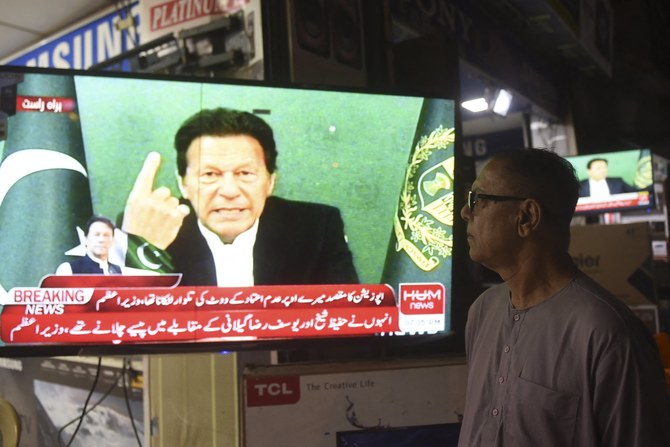ISLAMABAD: Prime Minister Imran Khan promised Sunday to "investigate" Pakistani citizens connected to a massive probe into the hidden wealth of politicians worldwide, after members of his inner circle were implicated in the report.
The so-called "Pandora Papers" investigation -- involving some 600 journalists from media including The Washington Post, the BBC and The Guardian -- is based on the leak of some 11.9 million documents from 14 financial services companies around the world.
Some 35 current and former world leaders are featured in the documents analyzed by the International Consortium of Investigative Jour1nalists (ICIJ) -- facing allegations ranging from corruption to money laundering and global tax avoidance.
In Pakistan, routinely ranked as among the most corrupt countries in the world, members of Khan's inner circle -- including cabinet ministers and their families -- are said to secretly own companies and trusts holding millions of dollars.
"We welcome the Pandora Papers exposing the ill-gotten wealth of elites, accumulated through tax evasion & corruption & laundered out to financial 'havens,'" Khan said in a long Twitter thread.
"My govt will investigate all our citizens mentioned in the Pandora Papers & if any wrongdoing is established we will take appropriate action. I call on the international community to treat this grave injustice as similar to the climate change crisis."
Khan, who had run for office on an anti-graft platform, said that global poverty levels were fueled by corruption in tax havens, which he said divert funds away from the general public.
He also slammed wealthy countries for not being "interested in preventing this large-scale plunder nor in repatriating this looted money."
The "Pandora Papers" are the latest in a series of mass ICIJ leaks of financial documents, from LuxLeaks in 2014, to the 2016 Panama Papers, the Paradise Papers in 2017 and FinCen files in 2020.
One of Khan's predecessors, Nawaz Sharif, was ousted by the country's Supreme Court in 2017 over allegations made in the Panama Papers.
In total, the ICIJ found links between almost 1,000 companies in offshore havens and 336 high-level politicians and public officials, including country leaders, cabinet ministers, ambassadors and others.
In most countries, the ICIJ stresses, it is not illegal to have assets offshore or to use shell companies to do business across national borders.
But such revelations are no less of an embarrassment for leaders who may have campaigned publicly against corruption -- such as Khan -- or advocated austerity measures at home.















